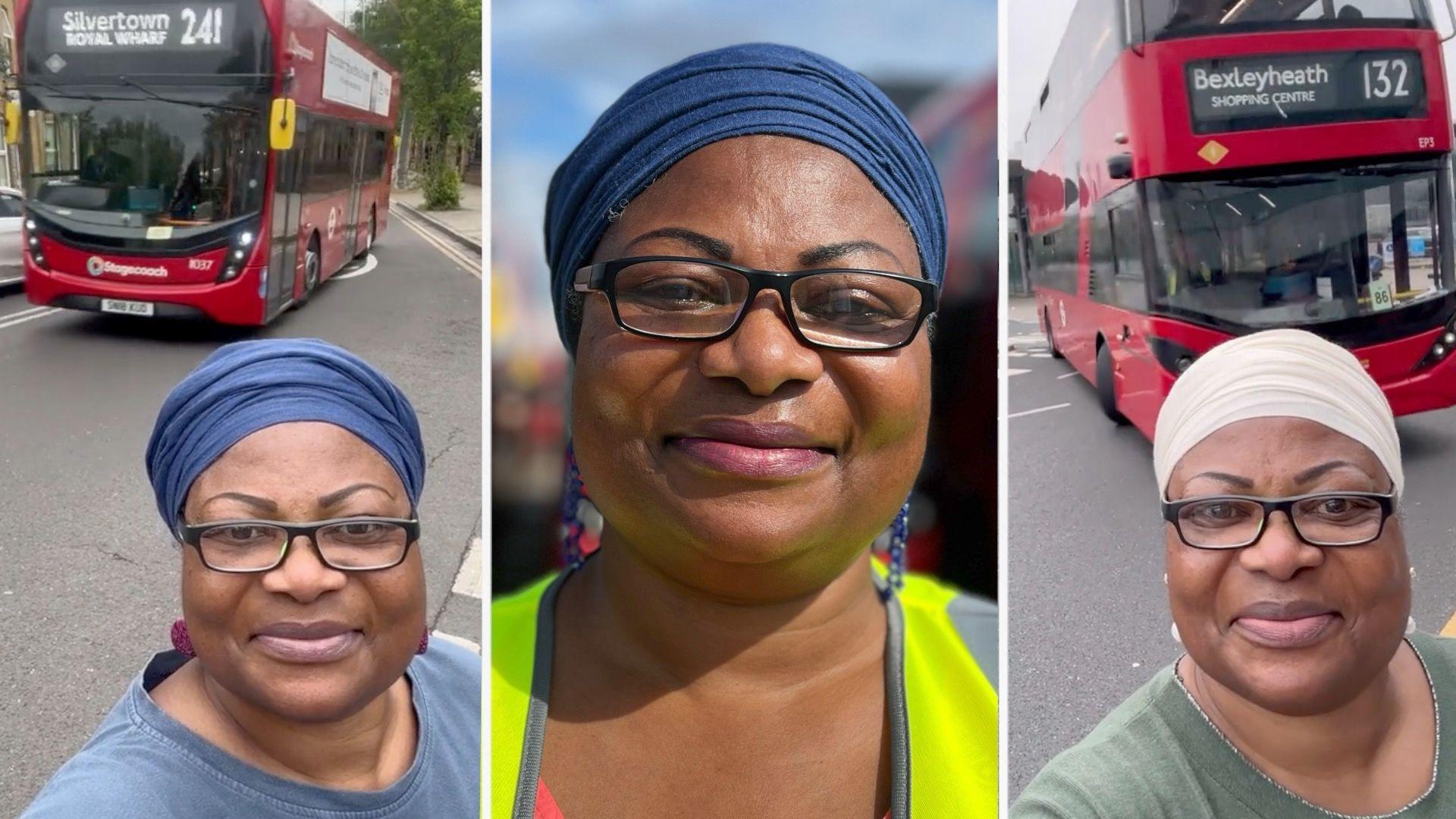'The Tube strike will cost me hundreds of pounds a day'
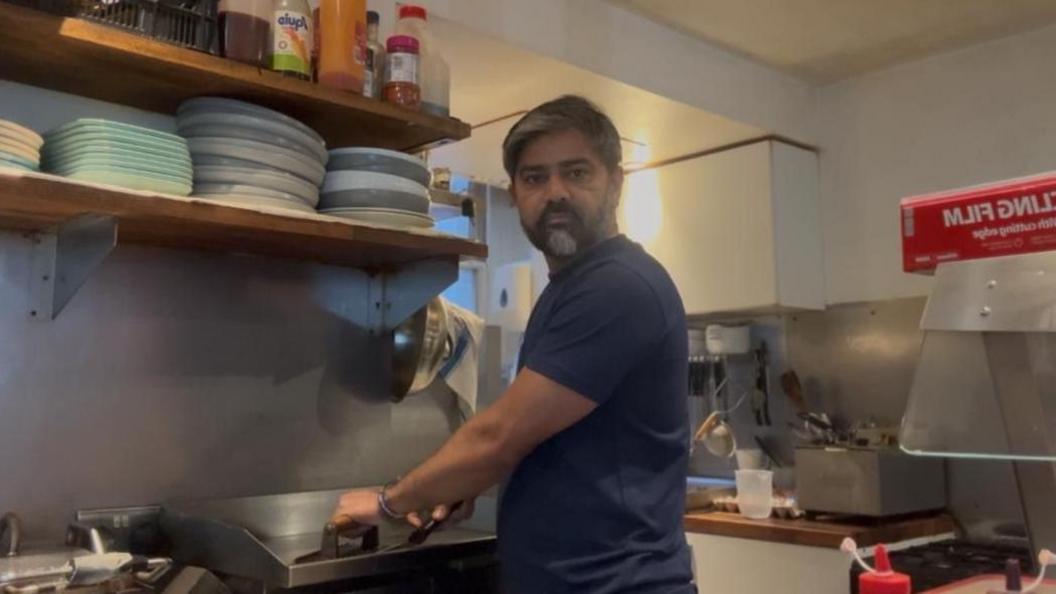
Prasanna Callaghan owns the Crumpets Cafe in central London
- Published
"We will lose £600-£700 a day. One day might be bearable but it will be impossible to recuperate that total cost," says Prasanna Callaghan, owner of Crumpets Cafe in Buckingham Gate, central London.
He's one of many business owners fearful of the economic impact of the five-day Tube strike, which began on Sunday.
The Centre for Economics and Business Research suggests the strikes could have a direct economic cost of about £230m, reflecting the loss of roughly 700,000 working days across both Transport for London (TfL) staff and the wider commuter base.
It said the true economic hit was likely to be significantly higher once the indirect effects were considered.
'Significant disruption'
London Underground services are set to face disruption until Thursday after workers walked out in a rolling action over pay and conditions. Members of the Rail, Maritime And Transport union (RMT) are staging the strike.
The Centre for Economics and Business Research said that a range of sectors, from professional services to retail and hospitality, would be affected by:
Reduced productivity as staff struggle to get into the office or arrive late
Shops restaurants and leisure venues experiencing weaker footfall and lower consumer spending
Congestion on London roads adding to delays and lost output
Sarah King, London development manager at the Federation of Small Businesses, said: "Tube strikes will cause significant disruption for London's small businesses, many of which rely on footfall and staff mobility to stay afloat.
"We urge all parties to work towards swift, constructive resolutions that safeguard local economies and minimise the impact on the capital's entrepreneurs and small firms."
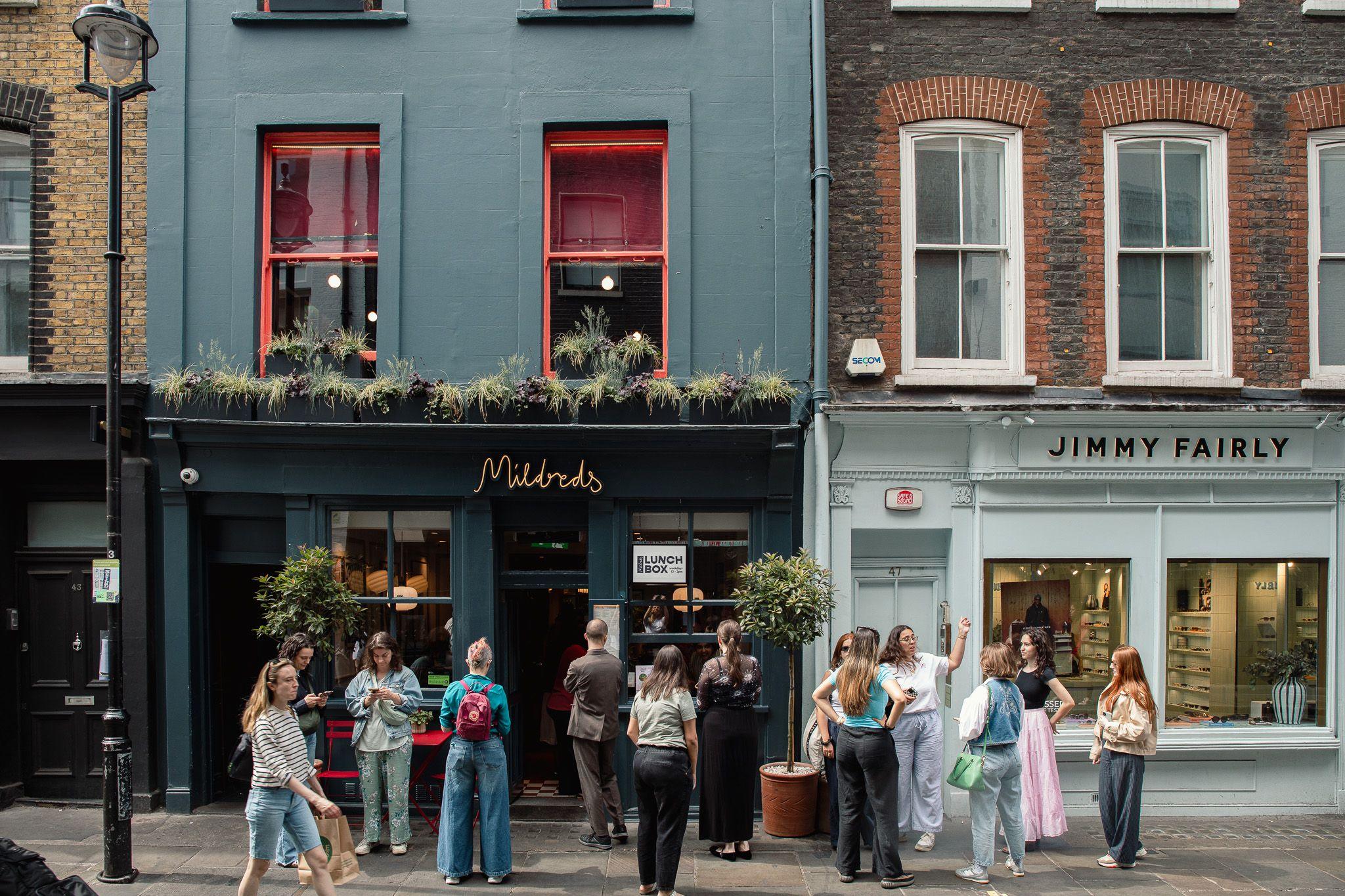
"Strikes do hurt," says vegan restaurant Mildreds
Mildreds, a vegan restaurant in Soho, says a week of strikes might cut bookings by double digits. They're offering gift cards to customers who visit during that time.
"It's significant for us, but even tougher for smaller businesses. That's why we're focusing on loyalty and encouraging guests to return," head of marketing Shaun Bates said.
"As a business, strikes do hurt, but we understand why they happen. We'd always prefer no disruption, yet our priority is thanking the people who still come to see us."
'Fatigue management'
Following a move to remote working during and after the pandemic, flexible arrangements to allow staff to work from home have been restricted or brought to an end by some employers with offices in London.
According to the Centre for Cities,, external central London workers have continued to return to the office since last year.
Mr Callaghan, whose cafe is in Pimlico, told BBC London he had noticed "more people coming back to the office", but said the strike would encourage people to work from home.
His business is already making 30% less money than last year, he said, due to issues including the National Insurance hike paid by employers.
Five-day London Underground strike under way
- Published7 September
The strike is about pay but also conditions. The RMT has concerns about "fatigue management" - the stress that early and late shifts have on the health of its members.
It has asked for a 32-hour week, and said "we are not going on strike to disrupt small businesses or the public".
The RMT instead blamed the strike on what it called the "intransigent approach of TfL management" for "their refusal to even consider a small reduction in the working week".
"I understand frustrations around pay but the unions had a pay rise recently and others haven't had that privilege," Mr Callaghan says.
"Think about who you are hurting. It's the small businesses in central London and people coming here as tourists - they can't get around.
"It's a vicious circle."
'Neither practical nor affordable'
Claire Mann, TfL's chief operating officer, said in a statement issued before the strike began: "We call on the RMT to suspend this action, put our fair and affordable offer to their members and continue discussions with us.
"Our pay deal is in line with other offers accepted by the RMT across the rail industry, so it is disappointing the RMT is planning to disrupt Londoners without giving their members a say on the offer.
"We welcome further engagement from all of our unions about managing fatigue across the network, but a reduction in the contractual 35-hour working week is neither practical nor affordable."
Listen to the best of BBC Radio London on Sounds and follow BBC London on Facebook, X and Instagram. Send your story ideas to hello.bbclondon@bbc.co.uk
Related topics
- Published4 September
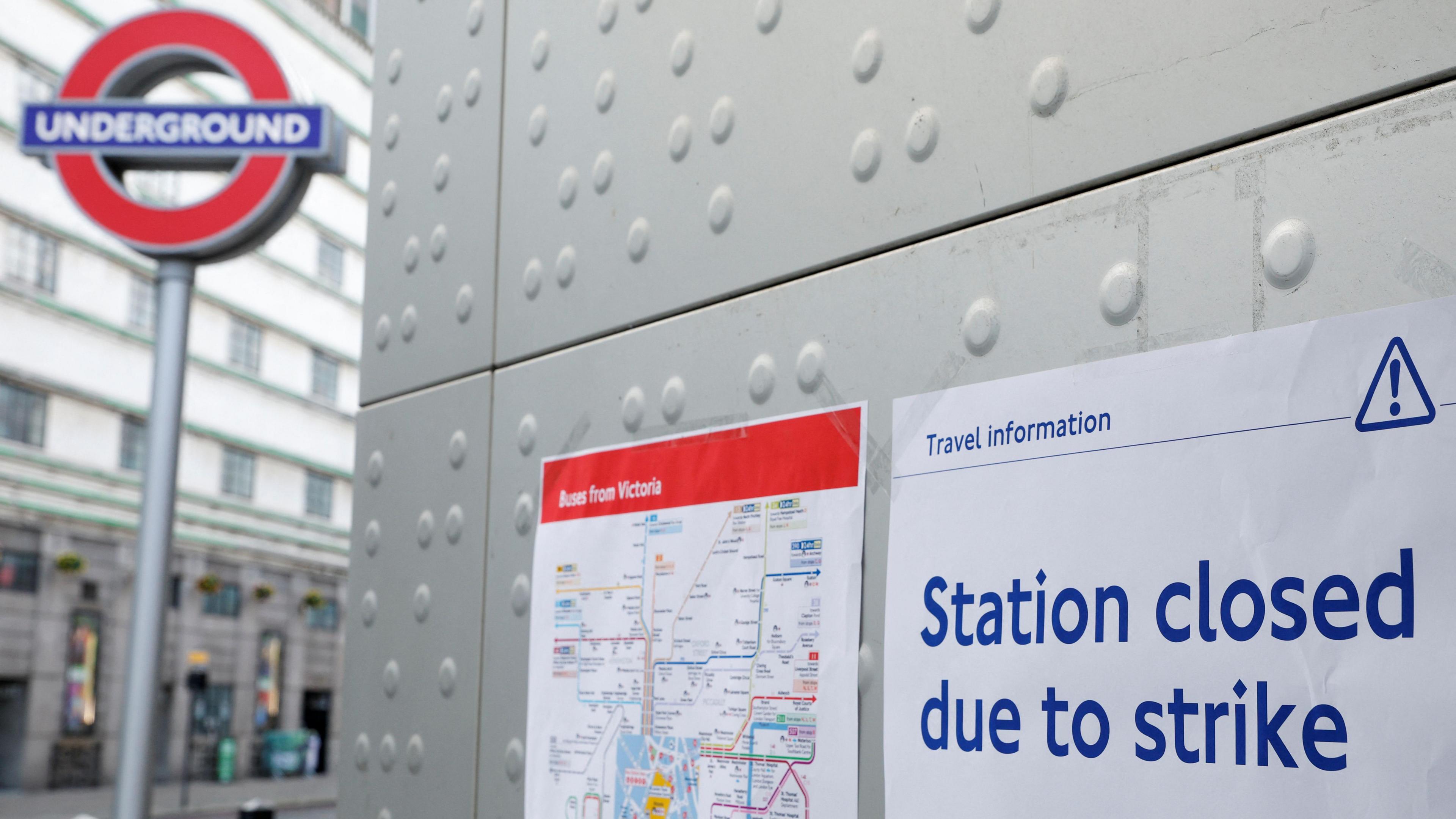
- Published8 September
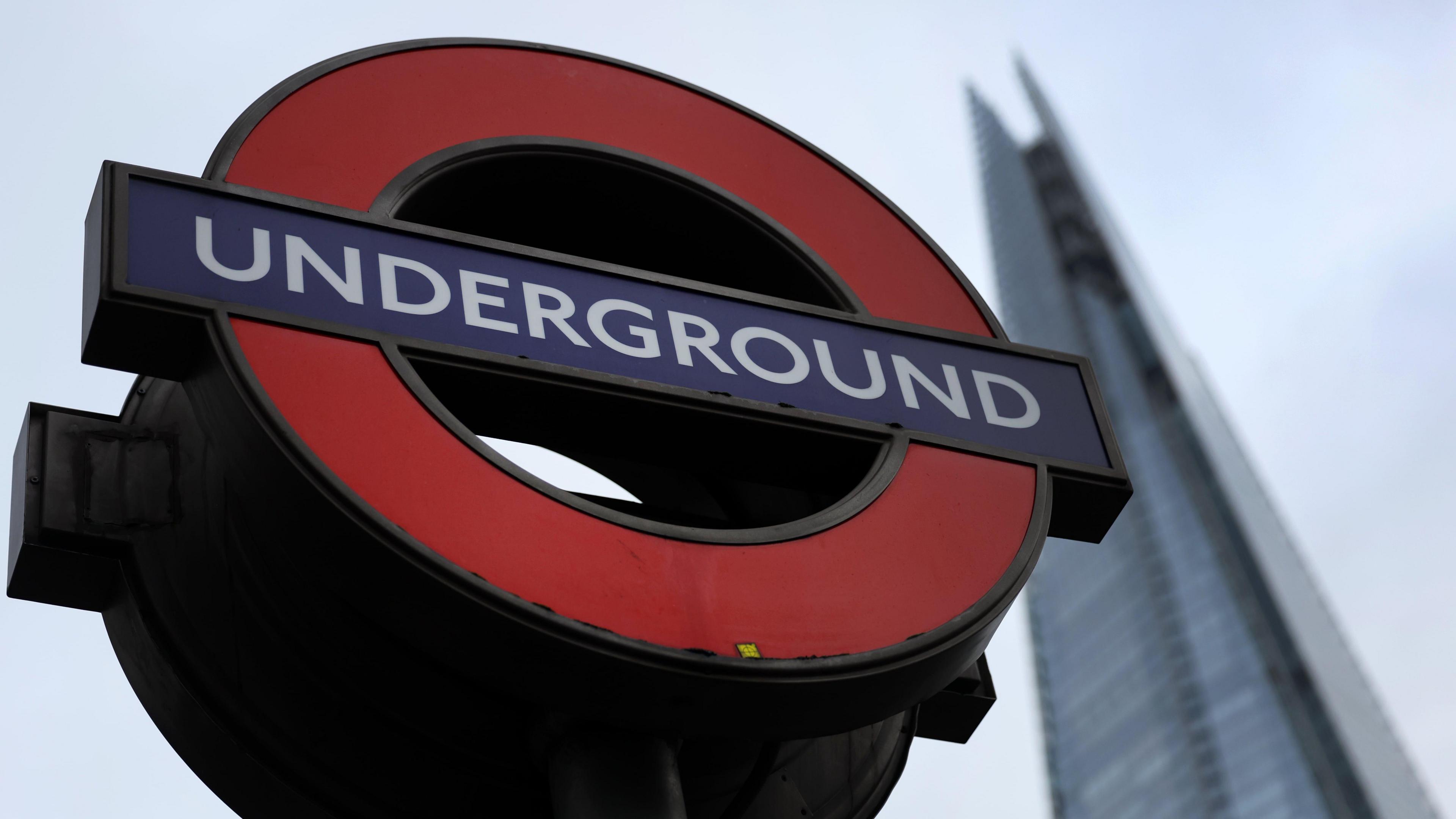
- Published1 September
